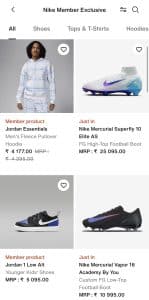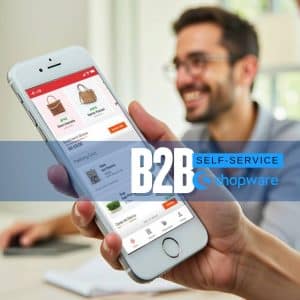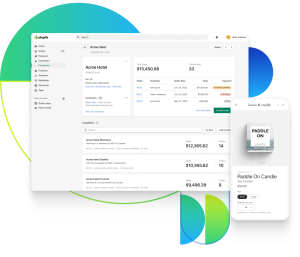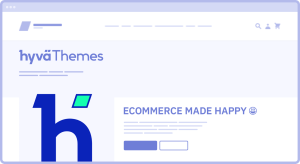1. Shopware’s Expanding U.S. Ecosystem: A Strategic Opportunity for Merchants
Shopware has long been recognized as one of Europe’s most flexible and innovative ecommerce platforms.Over the past few years, its presence in the U.S. has expanded at a remarkable pace, which is why it continues to gain strong momentum in the market. This expansion is not incidental, it reflects a deliberate investment in infrastructure, partnerships, and technical innovation designed to meet the complex needs of modern American merchant.
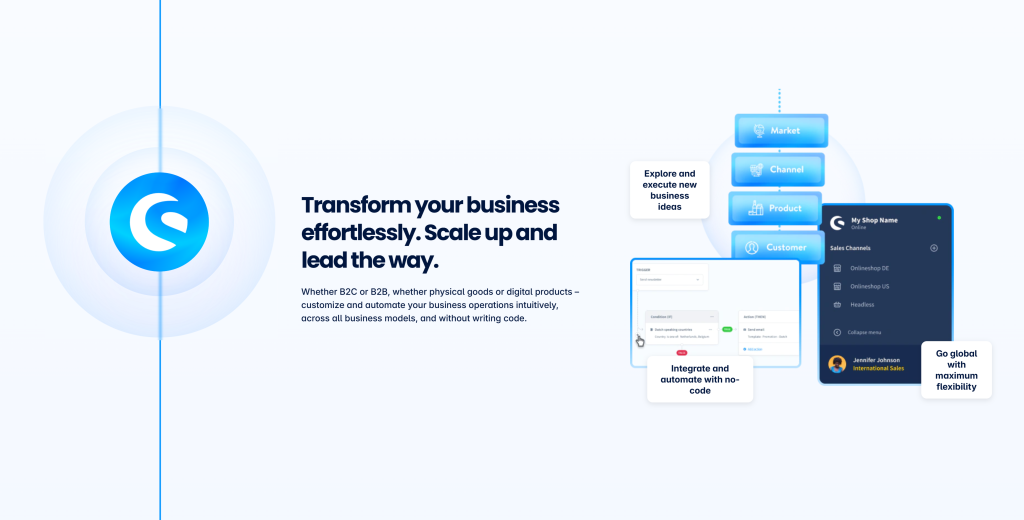
Why Shopware Is Gaining U.S. Traction
Unlike platforms that prioritize uniformity, Shopware is built on an open architecture, allowing merchants to design tailored commerce experiences instead of adjusting their business models to platform constraints. Moreover, this approach gives businesses greater freedom to innovate and scale on their own terms. Therefore, Shopware has become especially appealing to U.S. merchants operating in industries where differentiation, speed, and operational agility are essential.
Key factors driving ecosystem growth include:
- Mature European foundation with proven scalability across high-traffic, high-SKU environments.
- Strong community and partner ecosystem supporting rapid implementation and innovation.
- Native B2B & B2C capabilities eliminating the need for multiple platforms.
- Rapidly expanding vendor and tech ecosystem aligned with U.S. merchant needs.
- AI-first roadmap integrated into the platform core, not as a bolt-on.
U.S. Merchant Case Studies & Ecosystem Spotlight
Several prominent U.S. merchants have already embraced Shopware, leveraging its advanced capabilities to run both complex and high-growth commerce operations:
A hybrid B2B and B2C merchant in the vaping industry leveraging Shopware’s multi-storefront capabilities and advanced catalog management tools. Their flexible setup allows them to cater to wholesale distributors while maintaining a strong direct-to-consumer presence with differentiated pricing, promotions, and product segmentation.
A consumer-focused brand utilizing Shopware’s robust content management and marketing automation features to deliver personalized shopping experiences. With seamless integration into marketing platforms, VaporFi maximizes retention through targeted campaigns and streamlined checkout experiences.
A consumer brand focused on retention strategies and loyalty, taking advantage of Shopware’s native promotion engine and customer group management tools. This enables them to reward returning customers, run time-bound offers, and segment audiences effectively
A vendor-specific technology retailer running both B2C and B2B operations. Shopware’s flexible product data model allows them to manage thousands of SKUs with variable pricing and technical specifications efficiently, supporting multiple customer groups and complex fulfillment requirements.
A major consumer brand operating a headless commerce storefront powered by Shopware’s API-first foundation. By integrating best-in-class frontend technology, UPPAbaby delivers a high-performance global shopping experience with advanced scalability and design freedom.
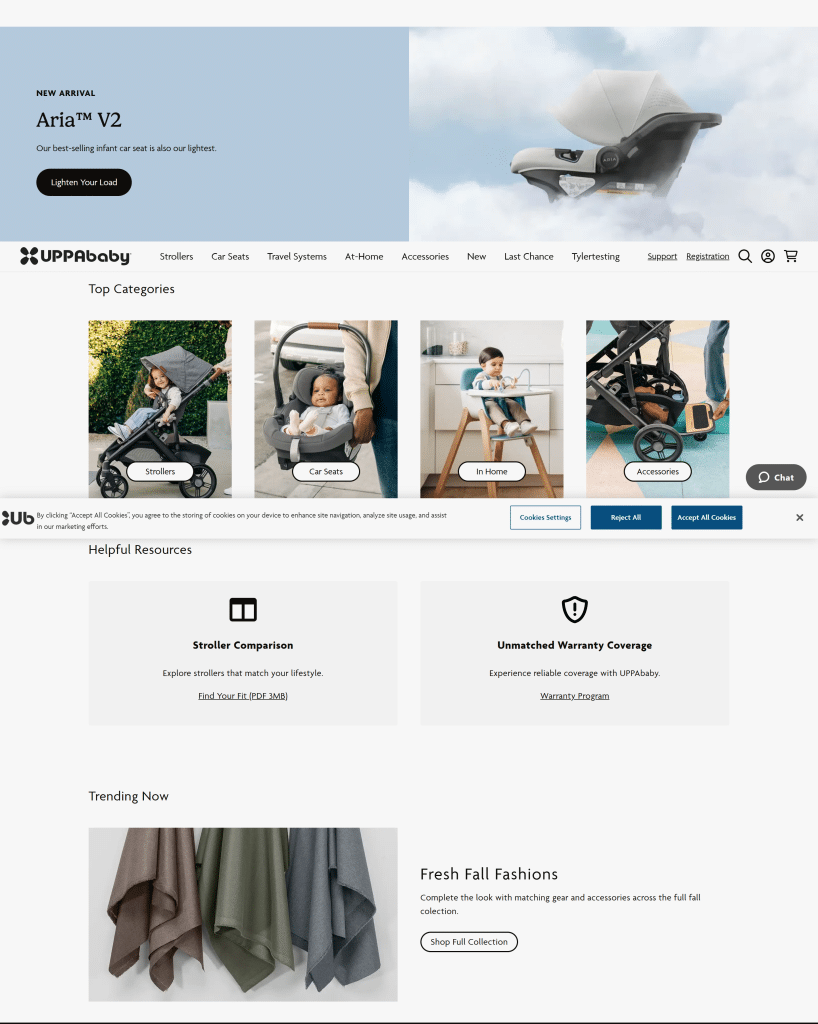
A large B2C retailer in the tabletop gaming and collectibles space. Shopware’s advanced catalog management and powerful search capabilities enable them to manage thousands of products efficiently while offering tailored promotions and bundled deals to drive repeat business.
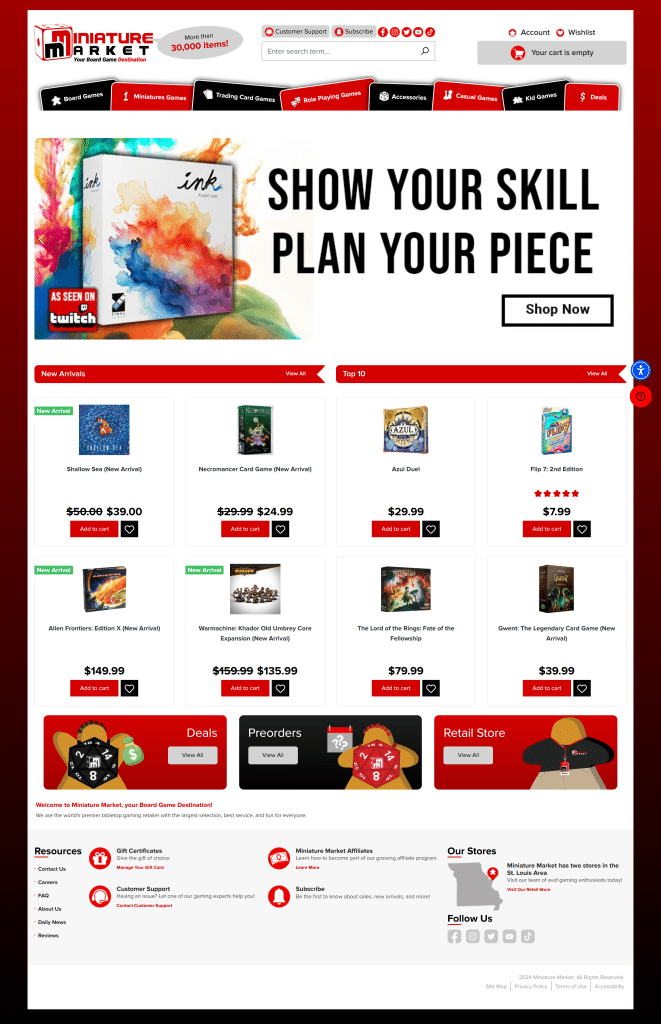
A nationwide sporting goods retailer with 250+ physical locations. While not publicly confirmed as a Shopware merchant, Dunham’s represents a strong use case for Shopware’s flexible architecture — particularly in supporting omnichannel operations, personalized promotions, complex catalogs, and enterprise-level hosting flexibility.
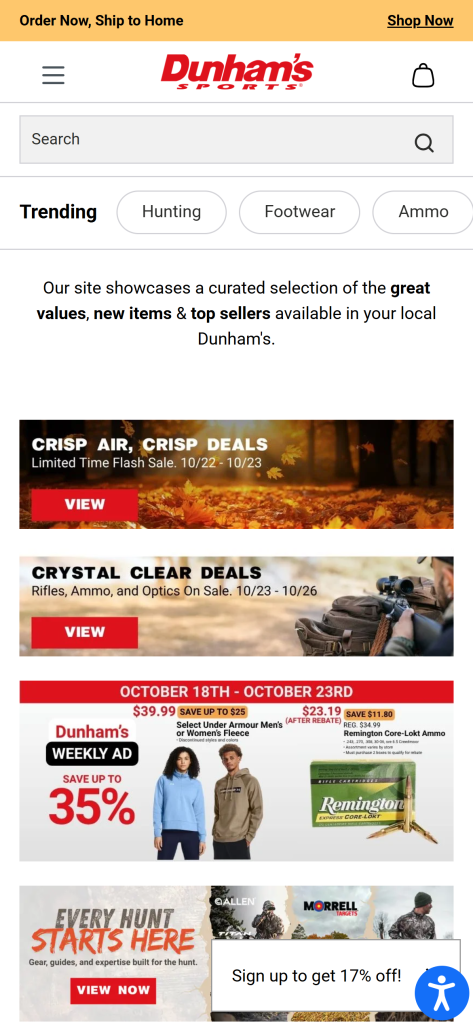
2. An Integration-Ready Platform: Shopware’s U.S. Technology Ecosystem
One of the strongest value propositions for U.S. merchants adopting Shopware is its deep and extensible integration ecosystem. Unlike platforms with rigid app structures or vendor lock-in, Shopware is built around API-first principles, enabling merchants to select and integrate the technologies they already trust.
2.1. Marketing Automation: Email & SMS Integrations
- Klaviyo: Shopware integrates seamlessly with Klaviyo, enabling merchants to power advanced lifecycle marketing, segmentation, and personalized campaigns. Merchants can sync customer profiles, automate abandoned cart flows, and launch targeted product recommendations—all without complex middleware.
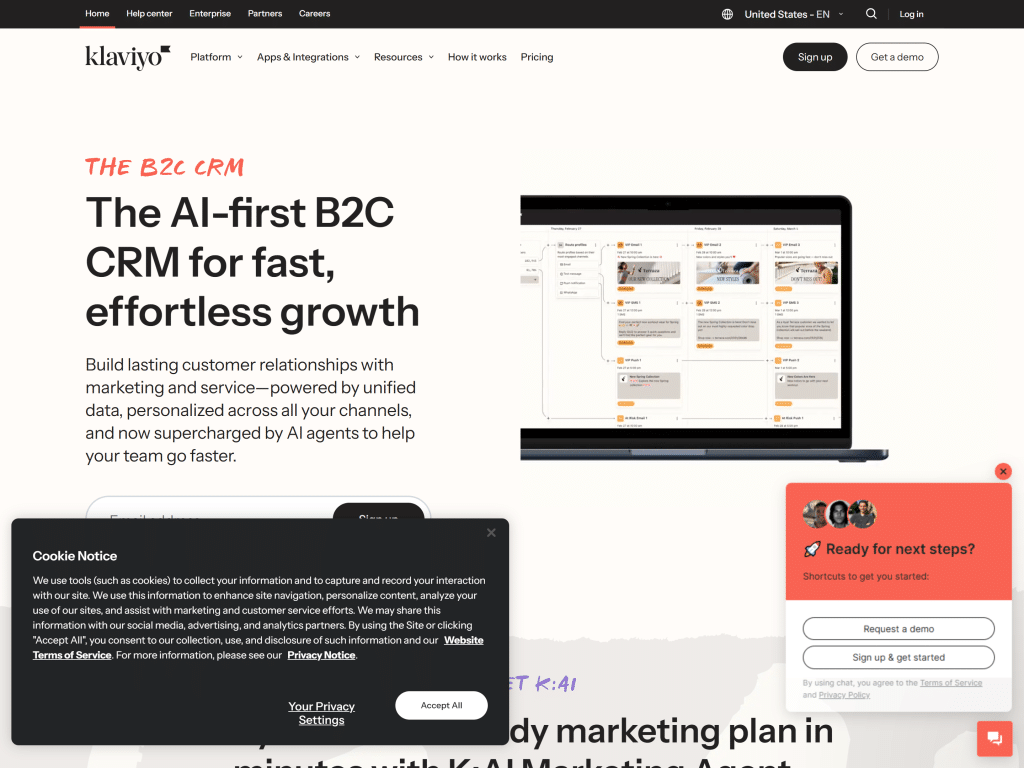
- Dotdigital: Dotdigital provides a robust omnichannel engagement platform. Through Shopware integration, merchants can design multi-channel customer journeys across email, SMS, push notifications, and more, ensuring cohesive brand experiences.
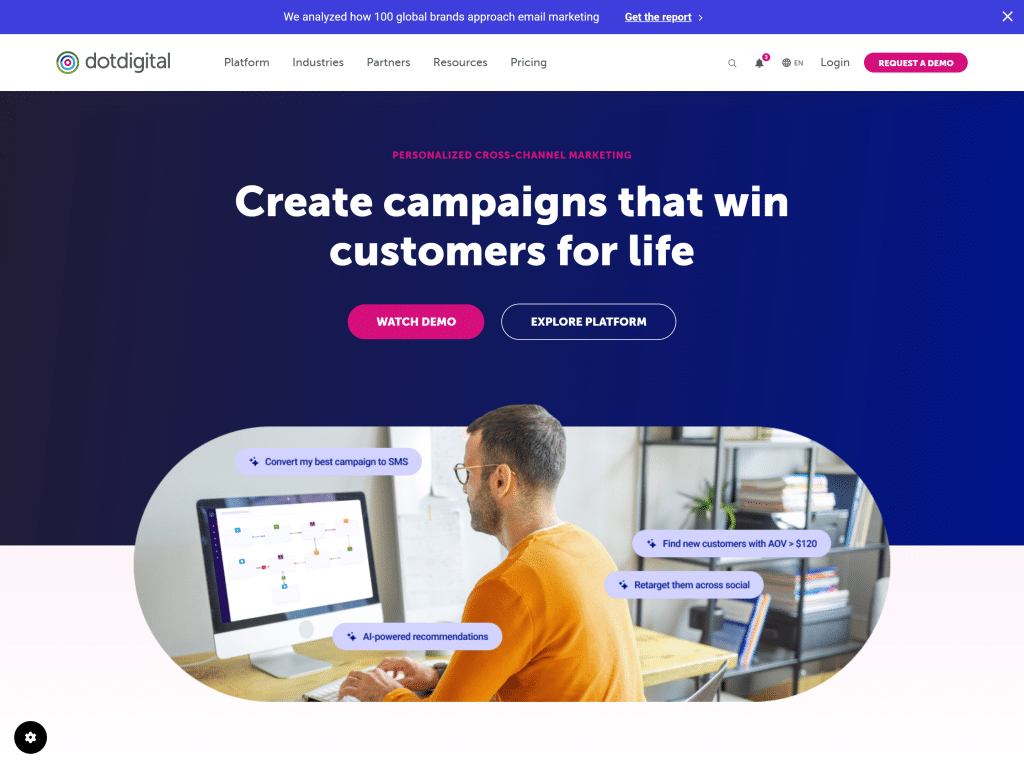
- Nosto: Used for advanced product recommendations and personalized merchandising across Shopware storefronts.
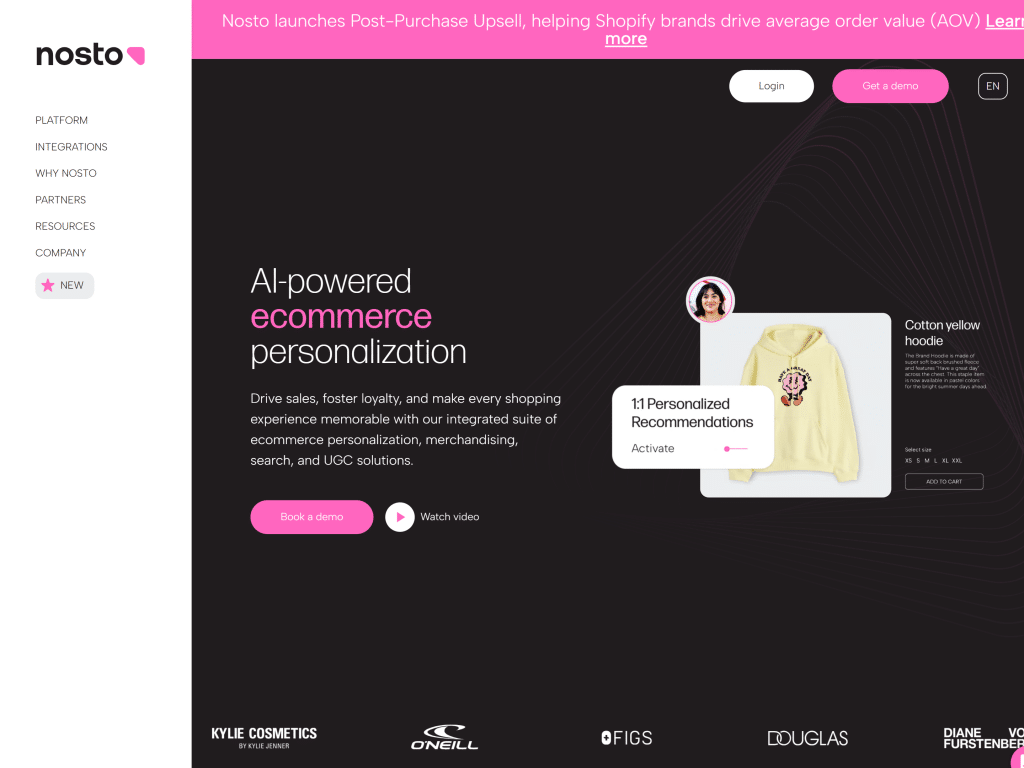
2.2. Payment Processing
Payment processing plays a mission-critical role in any eCommerce business. For U.S. merchants, the checkout experience is a direct conversion lever, it influences trust, average order value (AOV), and long-term customer loyalty. Shopware approaches payments with an open, modular architecture, allowing merchants to choose and configure the right mix of gateways and payment methods for their business model without being locked into a single vendor.
This flexibility allows brands to design payment strategies tailored to:
- The type of customer (DTC, B2B, or hybrid),
- Industry regulations and requirements (e.g., age-gated or regulated sectors),
- Geographic reach (domestic vs. international),
- And business priorities (cost optimization, conversion, fraud prevention, etc.).
Through its native integrations and rich App Store ecosystem, Shopware supports a wide range of global and regional payment providers, giving merchants the tools to scale confidently in the U.S. market.
1. Core & Global Payment Providers
1. Stripe — Frictionless Digital Payments at Scale
Stripe has become the go-to payment solution for modern eCommerce businesses due to its developer-friendly infrastructure and seamless customer experience. In Shopware, Stripe allows merchants to:
- Accept all major credit and debit cards.
- Enable Apple Pay and Google Pay with minimal setup.
- Offer subscription billing and recurring payments.
- Integrate advanced fraud detection powered by machine learning.
- Customize the checkout experience through Stripe Elements or Checkout.
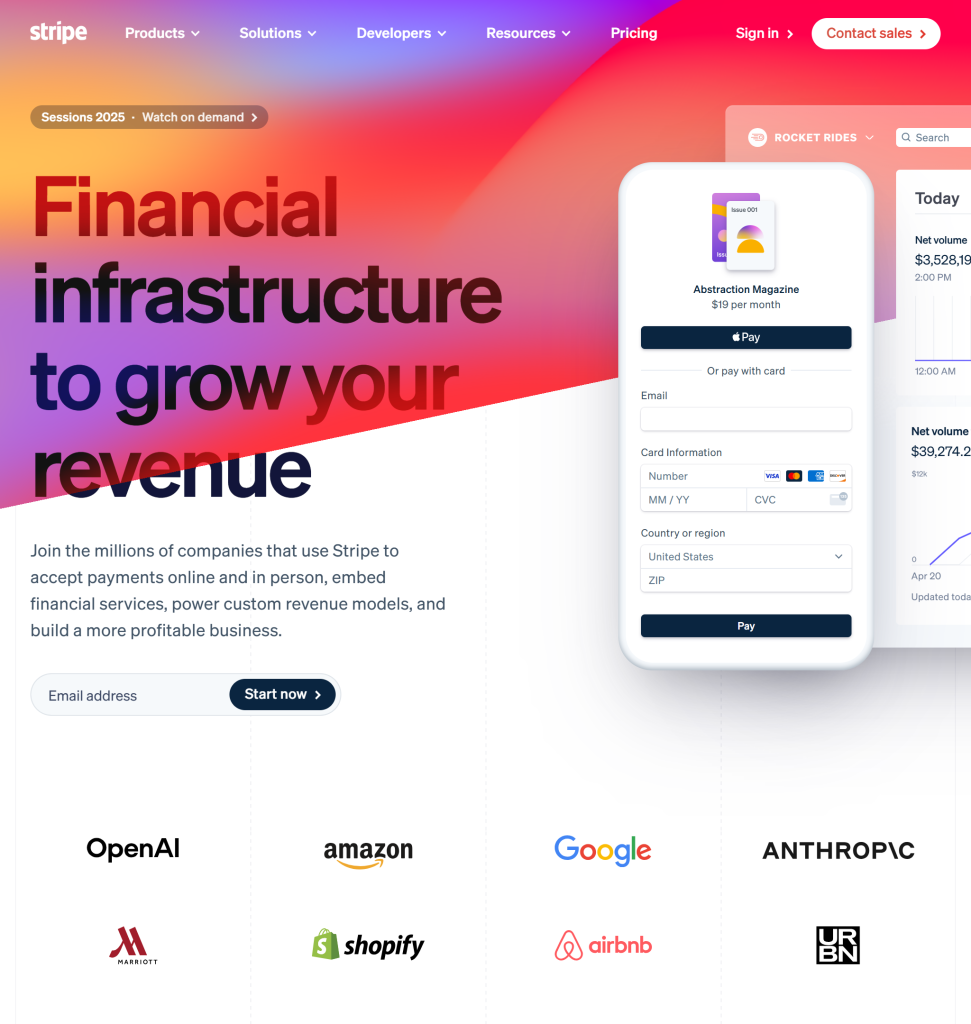
This makes Stripe ideal for DTC-focused brands looking to maintain flexibility, offer a sleek customer experience, and expand globally. For example, a consumer electronics retailer can use Stripe to enable fast checkouts across multiple storefronts, supporting both domestic and international cards while minimizing cart abandonment.
2. PayPal — Trusted Global Reach with a Native Integration
PayPal is one of the most widely trusted payment brands globally, and Shopware includes native PayPal integration out of the box, allowing merchants to activate it in just a few clicks. Key advantages include:
- Instant global reach with over 400 million active PayPal users.
- PayPal One Touch for single-click checkout.
- Pay Later and BNPL options to increase AOV.
- Transparent transaction management via PayPal’s robust dashboard.
- PCI compliance offloaded to PayPal, reducing merchant risk.

For merchants targeting international markets or who want to increase customer trust quickly, PayPal remains a top-performing conversion tool. Many brands pair Stripe and PayPal together to give customers maximum payment choice.
3. Adyen — Enterprise-Grade Omnichannel Processing
For enterprise merchants and retailers with omnichannel operations, Adyen provides a unified payments platform that handles:
- Online and in-store transactions under one account.
- A broad range of local and global payment methods.
- Real-time fraud detection and advanced security.
- Consolidated reporting for finance and operations teams.
- Custom routing and cost optimization.
Adyen is particularly powerful for brands with brick-and-mortar + eCommerce strategies. For example, a lifestyle retailer operating stores and an online storefront can reconcile all transactions through Adyen, ensuring consistency and improved financial visibility.
2. Trusted U.S. Payment Gateways
While global processors dominate the headlines, U.S. merchants often rely on regionally trusted payment gateways that integrate seamlessly with Shopware. These options provide transaction transparency, industry-specific flexibility, and cost-effective processing.
1. Authorize.Net — Legacy Reliability with Modern Security
Authorize.Net remains one of the most widely adopted gateways in the U.S., especially for merchants who have grown from legacy platforms or operate in regulated verticals. Key benefits include:
- Support for credit cards, eChecks, and recurring billing.
- PCI-compliant tokenization and fraud detection.
- Real-time transaction reporting.
- Easy migration from other eCommerce platforms.
- Deep integrations with ERP and accounting systems.
This makes it an excellent choice for established mid-market merchants or those who want a stable and proven payment stack.
2. PayTrace — Optimized for B2B Transactions
PayTrace is designed specifically with B2B commerce in mind, providing features that help merchants lower their processing costs:
- Level II and Level III data support, enabling interchange optimization.
- Flexible payment options for corporate cards and ACH transactions.
- Detailed reporting tailored for B2B workflows.
- Strong security and tokenization features.
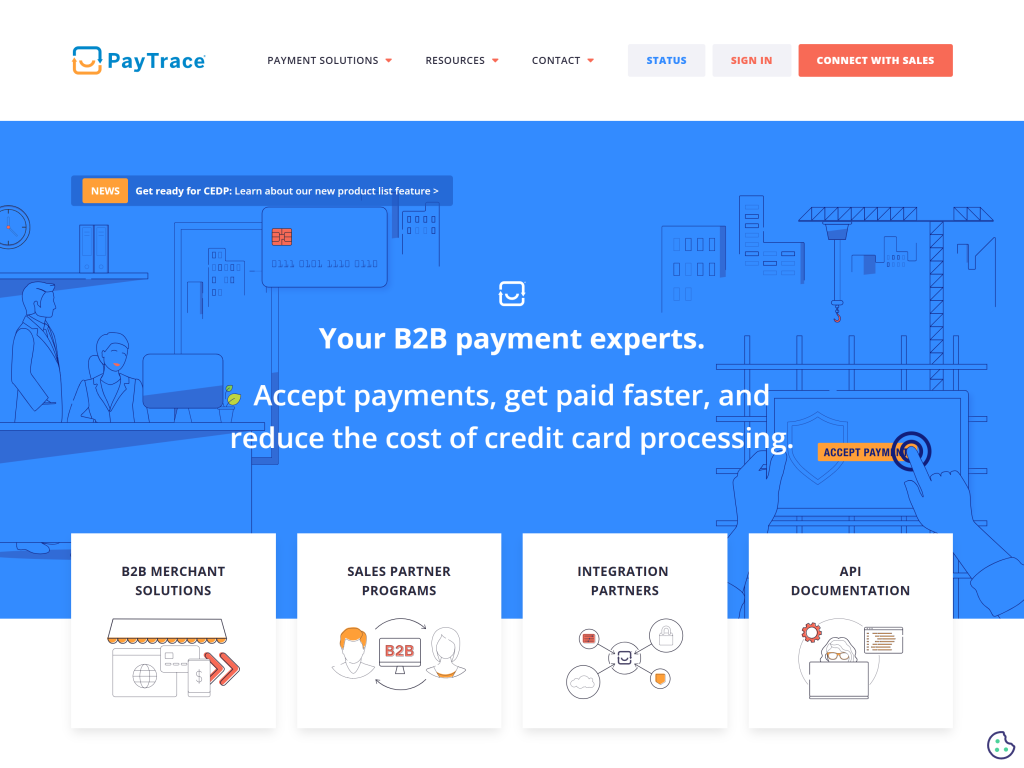
For wholesale distributors, manufacturers, or retailers with B2B channels, PayTrace helps reduce interchange fees while ensuring secure, compliant transactions.
3. NMI — Flexible Gateway Infrastructure for Complex Payment Strategies
NMI stands out for its gateway-agnostic flexibility, allowing merchants to work with multiple processors and acquiring banks through a single platform. This gives businesses more control over:
- Processor redundancy (minimizing downtime).
- Custom routing for cost and speed optimization.
- Tokenization and vaulting for recurring transactions.
- Unified reporting across multiple accounts.
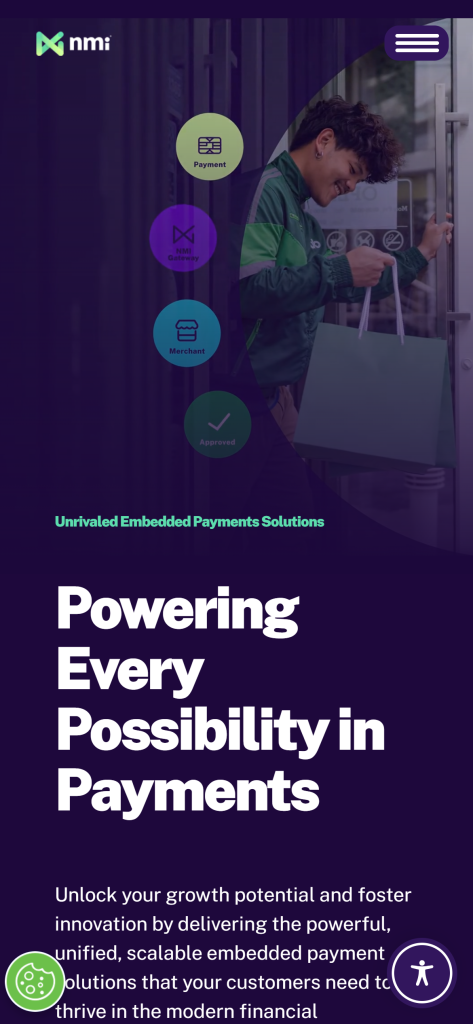
This is particularly advantageous for high-volume merchants or brands that operate across multiple storefronts and want to diversify their payment stack strategically.
4. PayPal — Trusted U.S. & Global Reach
PayPal remains a widely recognized and trusted payment brand in the U.S., offering both consumer familiarity and merchant reliability. Key benefits include:
- Instant U.S. reach with millions of active users
- One Touch checkout for seamless purchasing
- Pay Later options to increase AOV
- Comprehensive fraud protection and PCI compliance
- Smooth integration with Shopware for quick deployment
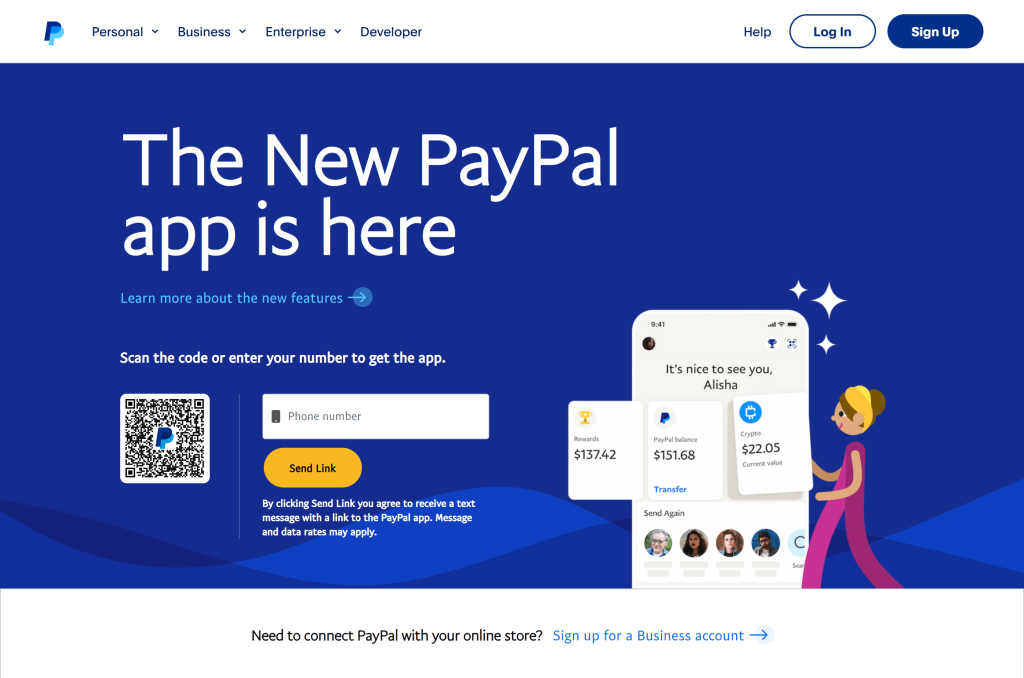
5. BlueSnap — All-in-One U.S. Payment Solution
BlueSnap is a U.S.-based gateway designed for both B2B and B2C merchants, offering a full-stack solution with global reach. Key features include:
- Accepts credit/debit cards, ACH, PayPal, and alternative payment methods
- Advanced fraud detection and risk management
- Subscription billing and recurring payment support
- Detailed reporting and analytics for operational insights
- Simplified global expansion while remaining compliant with U.S. regulations
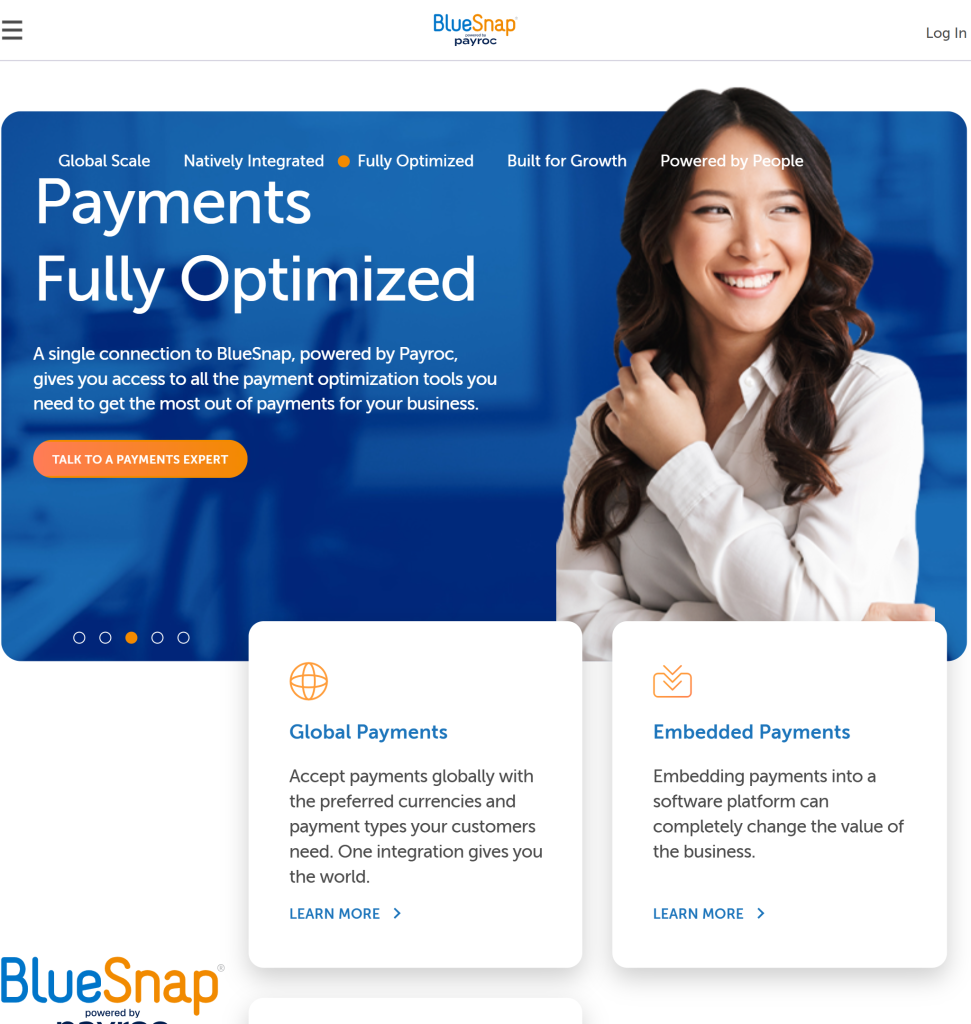
3. Alternative and Niche Payment Methods
Shopware’s API-first approach means merchants are not limited to traditional card processing. The platform supports either natively or through extensions a range of alternative payment methods, including:
- ACH and bank transfers for lower processing costs.
- BNPL (Buy Now Pay Later) options like Klarna, Affirm, and PayPal Pay Later.
- Stored value, gift cards, and loyalty-based payments.
- Industry-specific processors for regulated sectors.
- Cryptocurrency and Web3 payment integrations (for merchants seeking innovative options).
This enables merchants to differentiate their checkout strategy, especially in verticals like consumer electronics, collectibles, or subscription-based businesses.
4. Strategic Payment Stacking for U.S. Merchants
One of the biggest advantages of Shopware’s open ecosystem is the ability to stack multiple payment providers strategically.
For example:
- A DTC fashion retailer might use Stripe for card and wallet payments, PayPal for international customers, and a BNPL provider to increase AOV.
- A B2B distributor may use PayTrace to reduce interchange costs on corporate card transactions, while offering NMI as a backup gateway.
- A multichannel brand could rely on Adyen for unified omnichannel reporting and compliance.
This modular approach ensures merchants aren’t locked into a single provider, giving them flexibility to optimize cost, compliance, and customer experience over time.
5. Security, Compliance & Future-Readiness
All major payment integrations in Shopware meet PCI-DSS compliance standards and support tokenization, ensuring sensitive payment data is never stored insecurely. Merchants also benefit from:
- 3D Secure 2.0 and SCA (Strong Customer Authentication) for fraud reduction.
- Advanced reporting tools across providers.
- Support for recurring billing and subscription models.
- Rapid onboarding through pre-built App Store integrations.
As new payment technologies emerge from real-time payments (RTP) to alternative wallets and crypto, Shopware’s headless and API-first architecture ensures merchants can adopt new solutions quickly, without major replatforming.
2.3. Tax, Compliance & Accounting
For U.S. merchants, tax and compliance management is not just a legal requirement, it’s a critical operational function that can directly impact profitability, cash flow, and growth scalability. Shopware provides flexible integration capabilities with leading tax automation and accounting solutions, enabling merchants to streamline compliance, reduce manual overhead, and minimize risk.
Automated Tax Compliance
- Avalara
Avalara is a trusted leader in U.S. tax automation, making it a natural fit for merchants scaling across multiple states. It automates real-time sales tax calculations, handles nexus tracking, and generates compliance-ready reports. With Avalara, merchants can ensure they remain compliant with state and local tax laws without burdening internal teams.

- Vertex
Vertex offers enterprise-grade tax automation and reporting solutions, making it ideal for merchants with complex tax requirements or multi-entity structures. Its robust integration with Shopware enables automated tax determination, calculation, and returns filing for both B2C and B2B operations. Vertex is particularly suited to merchants with cross-border or omnichannel commerce strategies.
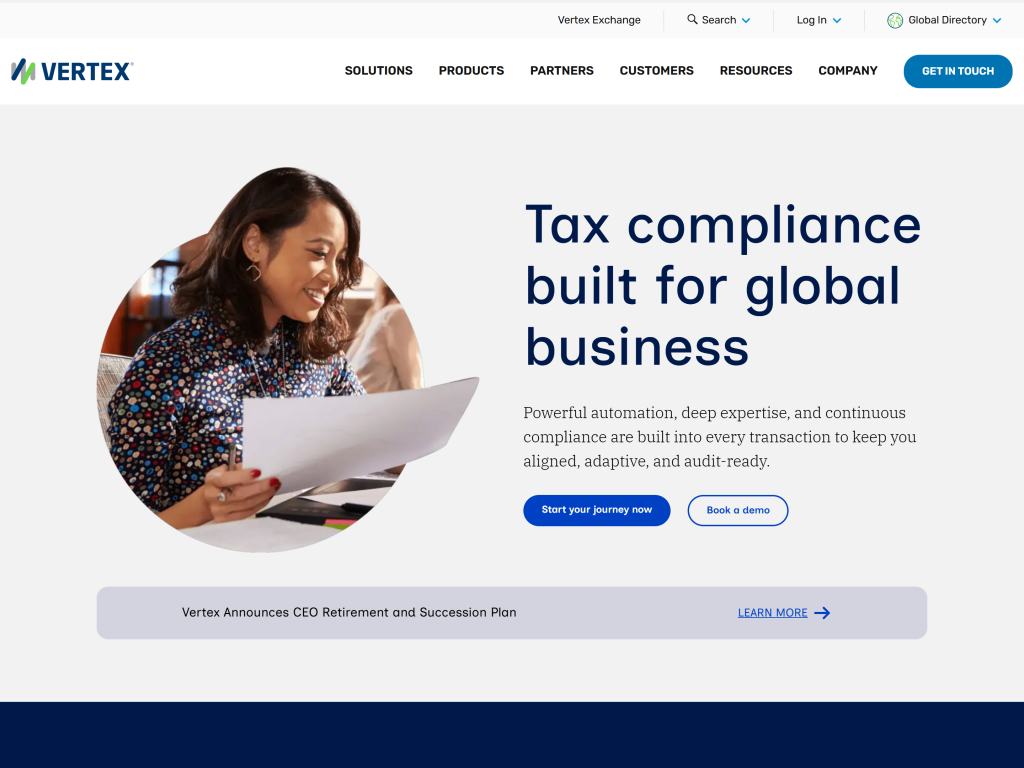
- Zamp
Zamp is an emerging, merchant-friendly U.S. tax automation platform designed to simplify compliance with minimal setup. Unlike traditional tax solutions, Zamp offers fully managed sales tax compliance, meaning they file returns on behalf of merchants and manage all the back-and-forth with tax authorities. This is an excellent choice for mid-market brands looking to reduce administrative complexity.
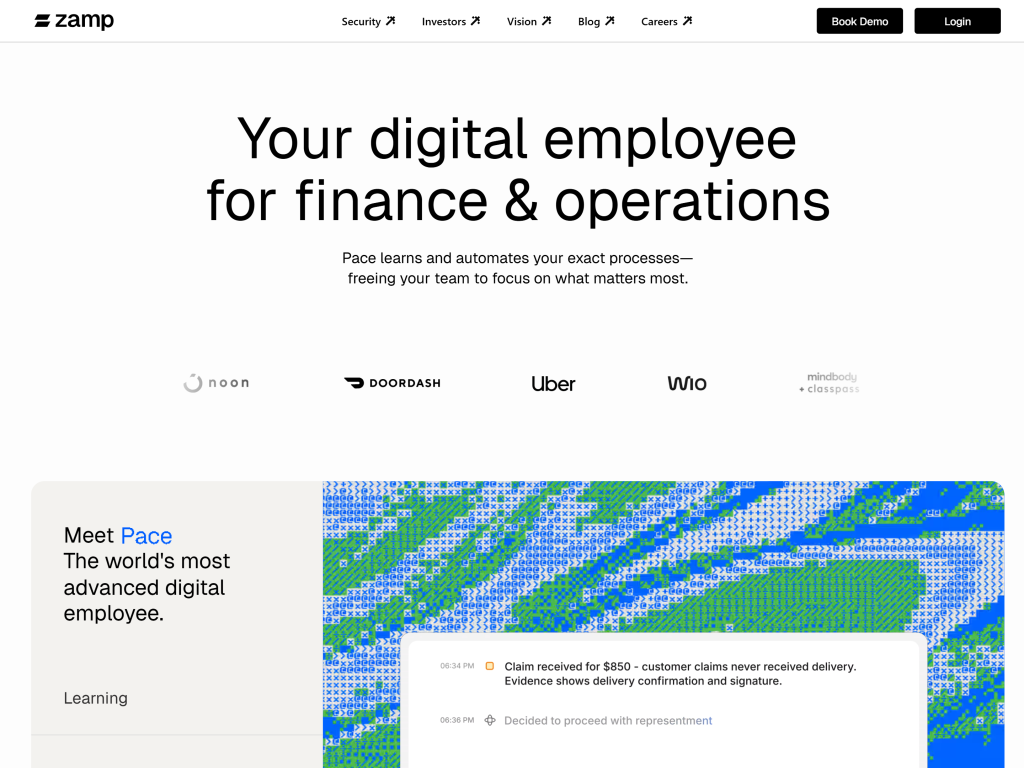
Accounting & ERP Integrations
- QuickBooks
Shopware’s integration with QuickBooks allows merchants to synchronize orders, invoices, tax data, and financial transactions in real time. This reduces manual data entry, improves bookkeeping accuracy, and keeps financial reporting aligned with operational performance.

- NetSuite
For scaling or enterprise-level merchants, NetSuite integration offers a more robust ERP and financial management backbone. Merchants can centralize inventory, tax, order, and financial data into a single source of truth — enabling smarter decision-making and operational efficiency.
- Other ERP & Accounting Options
In addition to the major platforms, Shopware’s open API structure makes it straightforward to connect with other systems such as Xero, Sage Intacct, or custom ERP implementations. This flexibility ensures that merchants can align tax and accounting systems with their preferred tech stack.
Business Impact and Merchant Advantages
- Multi-State Nexus Management:
With more states adopting complex tax nexus rules, automation ensures merchants remain compliant without adding manual workload. - Reduced Administrative Overhead:
Automated filing and reconciliation free up finance and operations teams to focus on growth initiatives instead of manual reporting. - Real-Time Financial Visibility:
Integrated accounting solutions provide instant insights into cash flow, tax liabilities, and performance critical for scaling operations efficiently. - Audit-Ready Operations:
Using trusted tax and accounting integrations ensures merchants maintain accurate, audit-ready financial records.
2.4. Search, Merchandising & Personalization
In a competitive U.S. eCommerce landscape, search and personalization capabilities can significantly influence customer acquisition, engagement, and retention. Shopware’s flexible, API-first architecture allows merchants to integrate best-in-class search and merchandising solutions to craft highly personalized, dynamic storefront experiences that drive measurable business results.
Advanced Search Solutions
1. Algolia
Algolia is one of the most widely used search solutions for U.S. merchants seeking lightning-fast, typo-tolerant search with advanced filtering and faceting capabilities. Its AI-powered search and recommendation engine delivers relevant results in milliseconds, improving conversion rates and average order value (AOV). Merchants can leverage Algolia’s robust API to:
- Build predictive, dynamic search experiences
- Apply merchandising rules to surface the right products to the right customers
- Personalize search results based on user behavior and trends
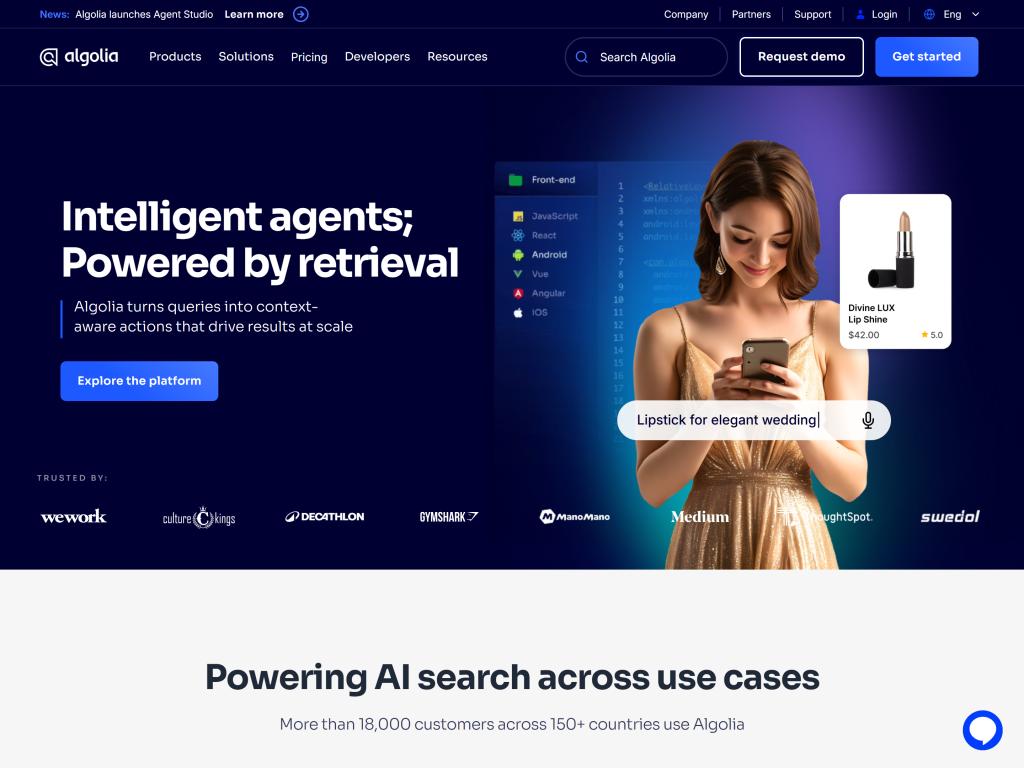
2. Athos Commerce (Bemeir Partner)
Athos Commerce focuses on advanced search and discovery experiences, making it ideal for large catalogs or complex product structures. Its enhanced personalization layers allow merchants to deliver curated product results based on shopper behavior, past purchases, and real-time signals. Key capabilities include:
- Multi-storefront configuration support
- B2B personalization at scale
- Integration with Shopware for a seamless experience across storefronts
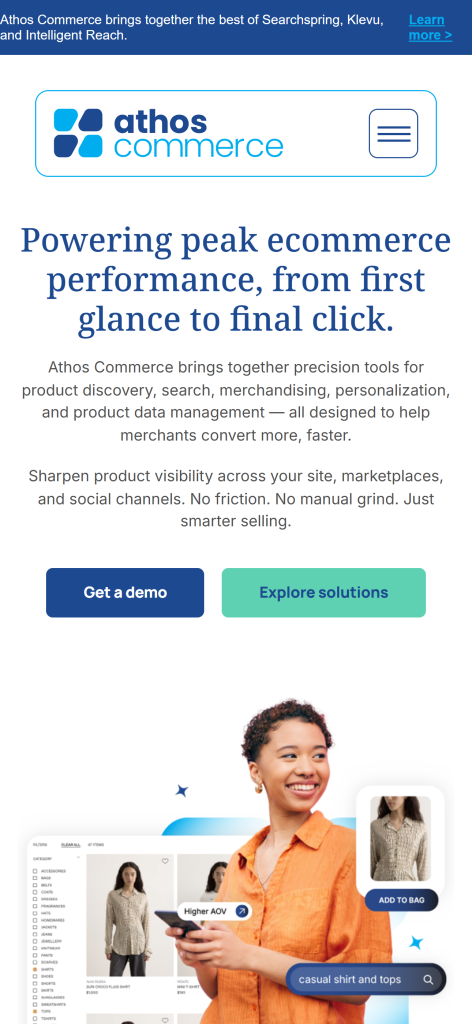
3. HawkSearch
HawkSearch provides enterprise-grade search and merchandising solutions designed for omnichannel retailers. Its intelligent search platform enables highly relevant results, recommendations, and automated merchandising decisions. Key benefits include:
- AI-powered search suggestions and autocorrect
- Personalized product recommendations based on behavior, purchase history, and segmentation
- Dynamic merchandising and sorting rules to maximize conversions
- Integration with Shopware via APIs for real-time product discovery
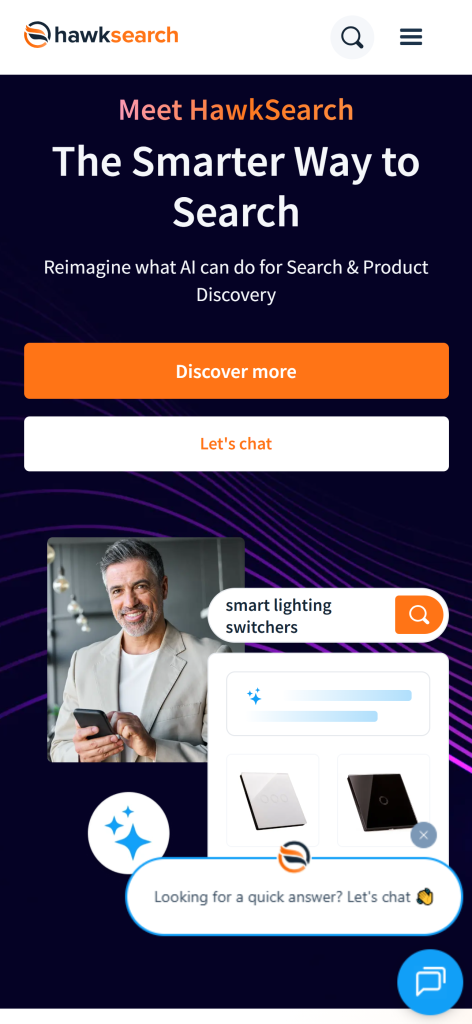
4. SiteVibes
SiteVibes focuses on personalization and customer engagement by analyzing shopper behavior in real-time. Merchants can deliver tailored experiences that increase engagement and drive repeat purchases. Features include:
- Behavior-based product recommendations and upsells
- Automated personalization across product listings, category pages, and landing pages
- Integration with Shopware to unify search, merchandising, and content personalization
- Analytics dashboards to track engagement and optimize campaigns
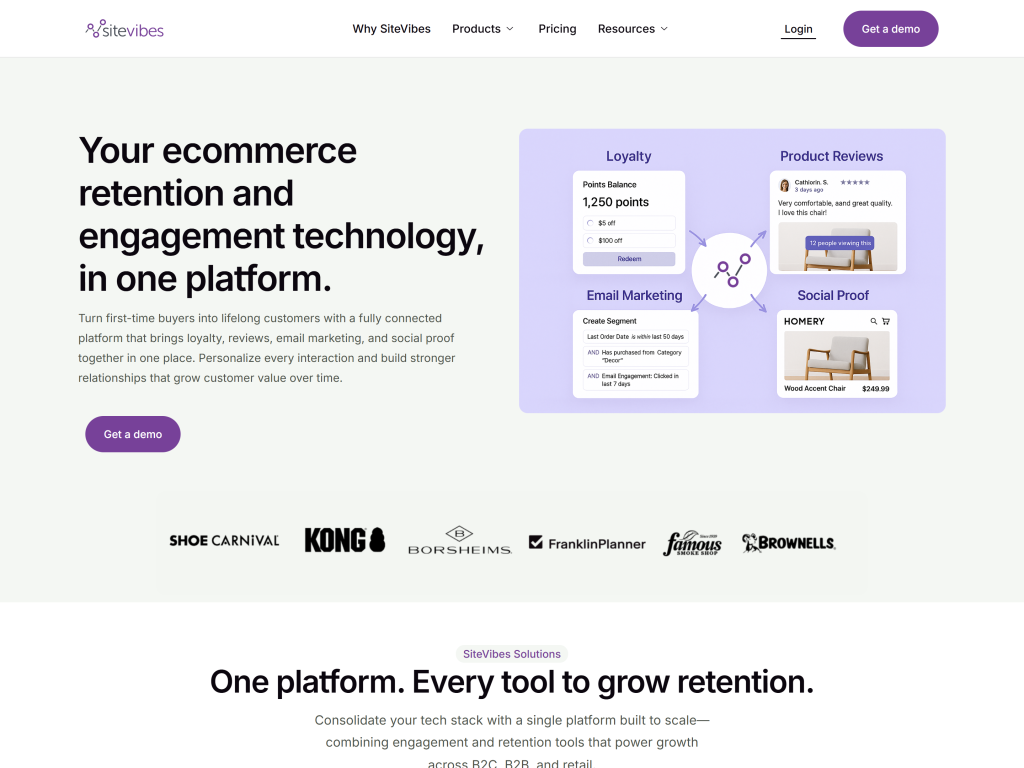
5. Nosto
Nosto is a leading personalization platform for eCommerce, enabling brands to create AI-driven, individualized shopping experiences. Its capabilities help improve engagement, AOV, and customer loyalty. Key features include:
- AI-powered product recommendations on-site and via email
- Segmentation and targeting based on real-time user behavior
- A/B testing for merchandising strategies and personalized campaigns
- Native integration with Shopware for seamless deployment across storefronts
Experience & Conversion Monitoring
Webeyez — AI-Powered UX Monitoring
Beyond search and personalization, monitoring user experience is critical to conversion. Webeyez is an AI-driven platform that continuously analyzes the customer journey, detecting friction points, errors, and anomalies that could impact revenue. Key capabilities include:
- Real-Time UX Monitoring: Detect potential issues as they happen.
- Session Replay & Journey Mapping: Visualize how customers navigate the storefront.
- Automated Alerts & Anomaly Detection: Prioritize fixes based on impact.
- Revenue Impact Analysis: Focus on improvements that maximize ROI.
For U.S. merchants, Webeyez ensures storefront performance aligns with business goals, reduces lost revenue, and allows teams to make data-driven decisions to optimize the shopping experience.
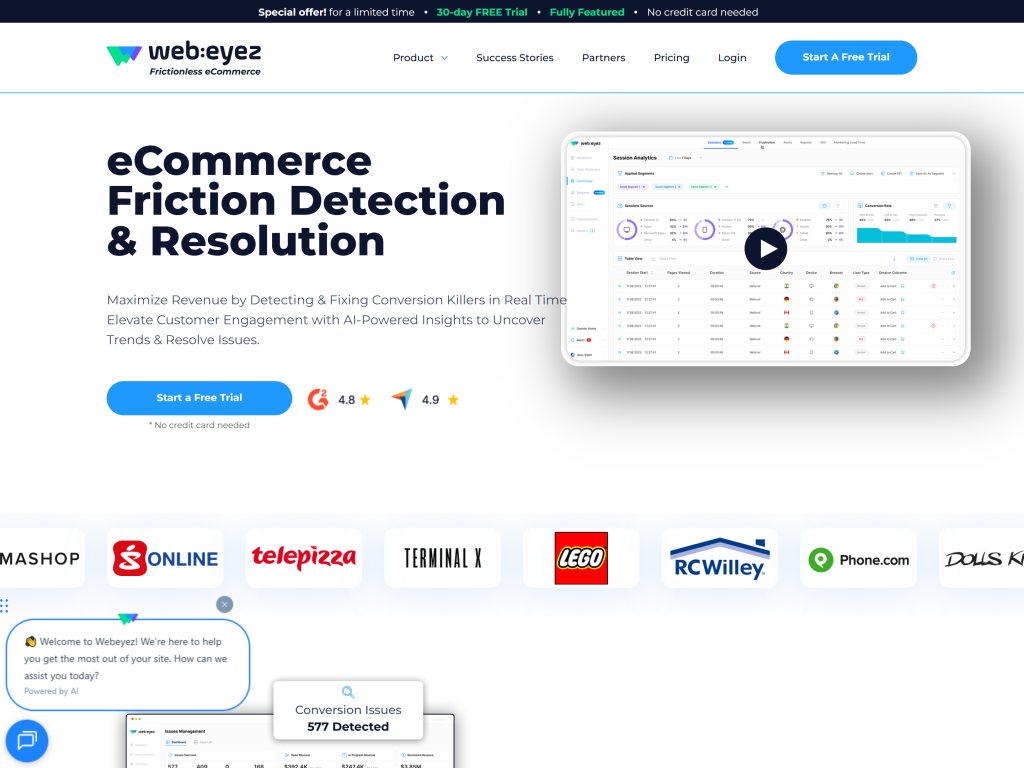
Merchandising & AI-driven Personalization
- Native Shopping Experiences
One of Shopware’s standout features is its native shopping experience builder, which allows marketing teams to create dynamic landing pages, product collections, and editorial commerce layouts without development overhead. This reduces go-to-market time for campaigns, enables A/B testing of merchandising strategies, and aligns brand storytelling directly with commerce. - Dynamic Yield (Optional Integration)
For brands looking to build deep personalization strategies, Dynamic Yield can be integrated with Shopware to offer AI-driven recommendations, real-time content personalization, and tailored merchandising rules. This is particularly effective for verticals like fashion, beauty, lifestyle, and collectibles. - Bloomreach (Optional Integration)
Bloomreach combines intelligent search, merchandising, and content orchestration in a single platform. Through its connector ecosystem, Shopware merchants can unify product discovery with personalized experiences that adapt in real time.
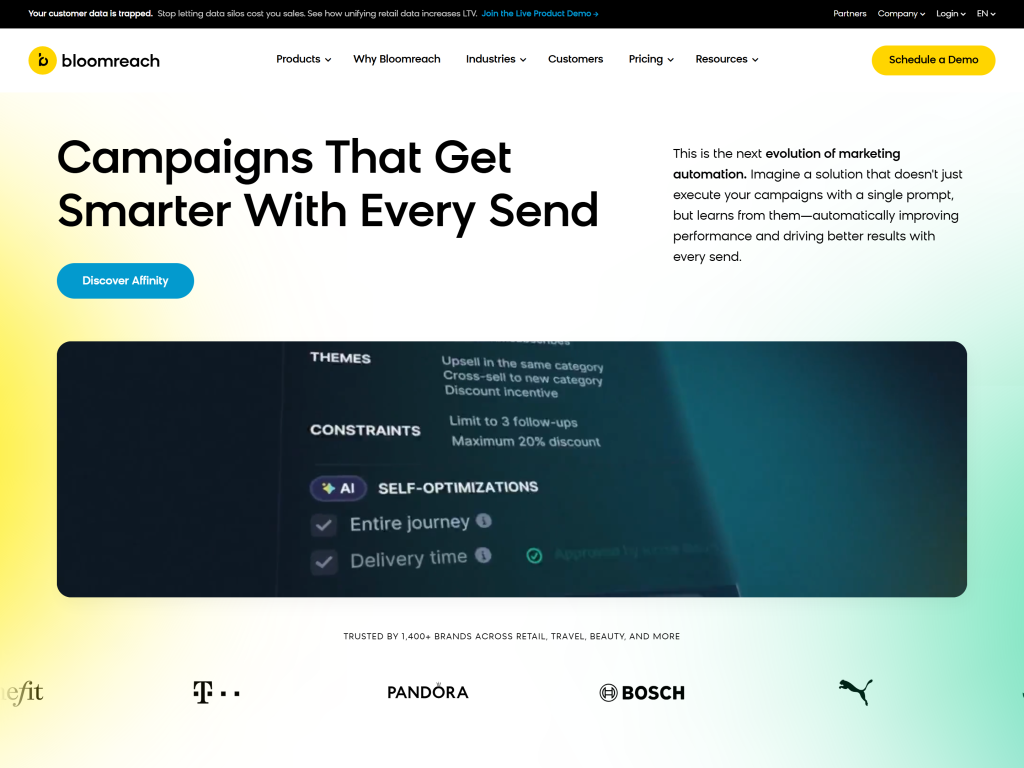
- Constructor.io (Optional Integration)
Constructor.io provides AI-first search and product discovery, specifically designed for enterprise retailers. Its capabilities around natural language processing, product ranking, and personalized recommendations make it a powerful option for merchants with complex catalogs or high SKU counts.
Why It Matters for U.S. Merchants
- Improved Conversion & Engagement:
Advanced search reduces bounce rates and improves product discoverability, leading to higher conversion rates. - Faster Merchandising Velocity:
Non-technical teams can launch personalized campaigns, landing pages, and product curation without engineering dependency. - Enterprise-Ready Flexibility:
From plug-and-play integrations like Algolia and Athos to advanced solutions like Bloomreach, Shopware supports merchants at every stage of their growth journey. - Omnichannel Consistency:
Personalization engines can synchronize experiences across web, mobile, in-store, and even marketplaces, ensuring consistent messaging and product availability.
2.5. ERP, OMS, and Fulfillment
Shopware works with a broad set of operational platforms, making it suitable for scaling merchants:
- ERP: NetSuite, SAP, Microsoft Dynamics
- OMS: Brightpearl, Linnworks
- Fulfillment: ShipStation, EasyPost, 3PL connectors
Because integrations can be implemented via REST or GraphQL APIs, merchants can adapt and reconfigure their tech stack as they grow—without being locked into rigid vendor ecosystems.
2.6. Spatial Commerce, AR, 3D, and Marketplace Integration
Shopware’s flexible API-first architecture enables U.S. merchants to explore cutting-edge commerce technologies like spatial commerce, augmented reality (AR), 3D product visualization, and multi-channel marketplaces. These capabilities enhance customer engagement, improve conversion, and open new revenue channels.
1. Spatial Commerce / Augmented Reality / 3D
Dopple
Dopple is a leading platform for 3D product visualization and augmented reality experiences. By integrating Dopple with Shopware, merchants can deliver immersive, interactive shopping experiences that allow customers to explore products virtually before purchase. Key benefits include:
- 3D Product Visualization: Shoppers can rotate, zoom, and interact with product models in real time.
- AR Try-On & Placement: Augmented reality allows customers to visualize products in their environment (e.g., furniture, home decor, accessories).
- Increased Engagement: Interactive AR experiences reduce returns and improve purchase confidence.
- Seamless Integration: Dopple connects to Shopware catalogs via APIs, ensuring product data and media remain synchronized.
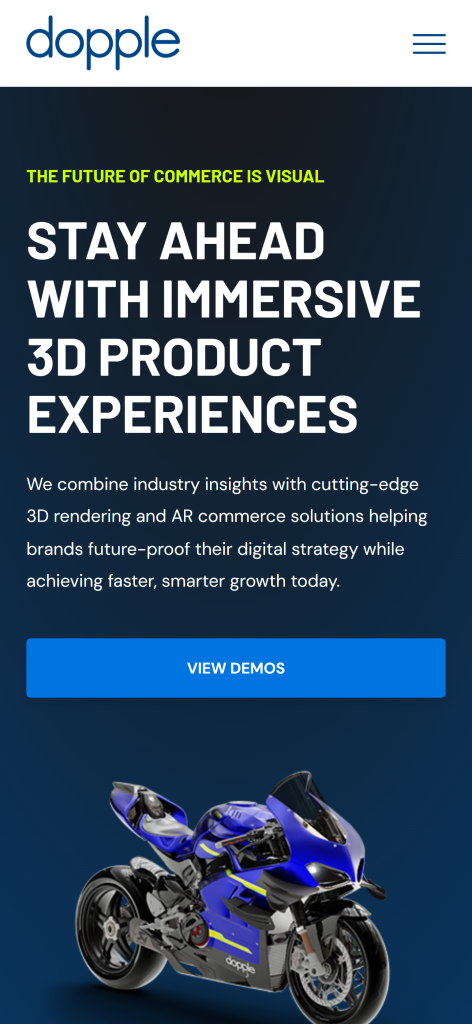
2. Marketplace / Multi-Channel
Mirakl
Mirakl is a robust marketplace platform that allows brands and retailers to scale through multi-vendor marketplaces. Integration with Shopware enables merchants to expand product assortment without holding inventory while maintaining operational control. Key benefits:
- Rapid Marketplace Launch: Quickly onboard multiple vendors into a unified storefront.
- Centralized Vendor Management: Manage inventory, pricing, and fulfillment from one dashboard.
- Scalable Multi-Channel Expansion: Support B2B and B2C marketplaces across verticals.
- Analytics & Insights: Track vendor performance, sales trends, and marketplace health in real time.
Marketplacer
Marketplacer offers a flexible platform for launching and managing digital marketplaces. It complements Shopware by enabling merchants to create niche, vertical-specific marketplaces efficiently. Key benefits:
- Full Marketplace Lifecycle: Vendor onboarding, catalog management, payments, and fulfillment.
- Customizable Storefronts: Create brand-aligned marketplace experiences tailored to target audiences.
- Integrated Payment & Commissions: Simplify revenue sharing and payment management across vendors.
- Omnichannel Support: Extend marketplace products to web, mobile, and connected commerce channels.
2.7. Verification, B2B Trade, and Shipping Optimization
To support complex U.S. merchant operations, Shopware integrates with specialized solutions that enhance identity verification, B2B commerce workflows, and shipping management. These integrations improve operational efficiency, reduce risk, and optimize the customer experience.
1. Identity Verification
Vouched provides real-time identity verification to ensure secure and compliant onboarding of customers. Integrating Vouched with Shopware allows merchants—particularly in regulated industries such as finance, healthcare, or age-restricted products—to confirm identities quickly and reliably. Key benefits include:
- Fast, Automated Verification: Capture and verify IDs, passports, or driver’s licenses in seconds.
- Fraud Prevention: Protects against identity fraud and chargebacks.
- Seamless UX: Integration with Shopware ensures verification occurs without disrupting the checkout or registration flow.
- Compliance Ready: Helps merchants meet KYC (Know Your Customer) and other regulatory requirements.
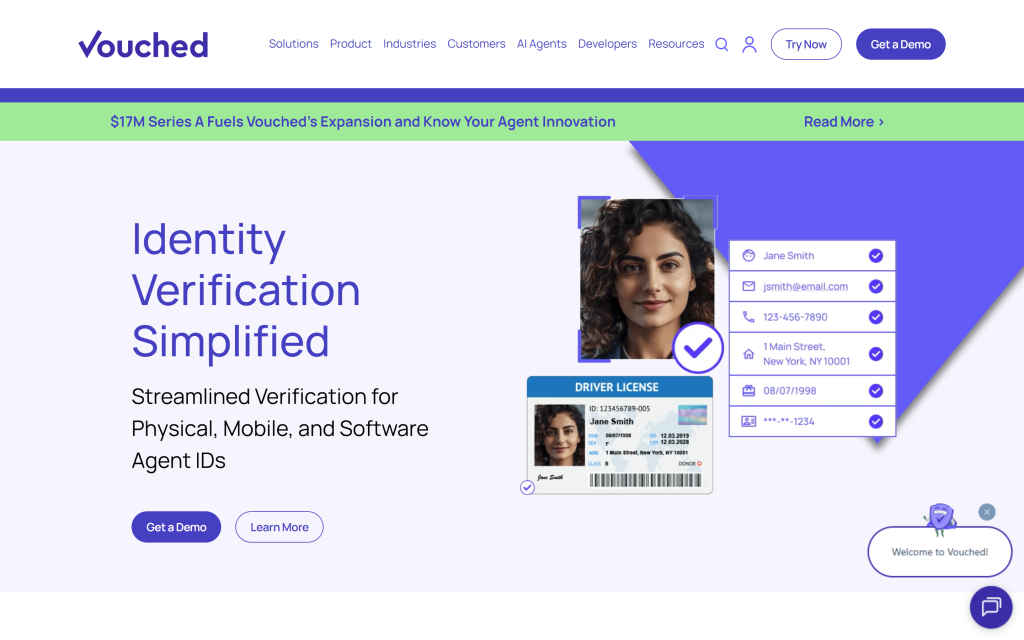
2. B2B Trade Management
TradeCentric
TradeCentric is a cloud-based B2B e-commerce solution that simplifies wholesale order management and supplier connectivity. By connecting TradeCentric to Shopware, merchants can streamline B2B operations while maintaining a unified catalog for both B2B and B2C audiences. Key benefits include:
- Supplier Integration: Consolidate multiple supplier catalogs into a single Shopware storefront.
- Order Automation: Automatically route B2B orders to the appropriate suppliers.
- Pricing Flexibility: Support tiered or negotiated pricing models for business clients.
- Scalable Wholesale Operations: Manage high-volume B2B transactions with minimal manual effort.
3. Shipping & Fulfillment Optimization
ShipperHQ
ShipperHQ is a robust shipping rate management and checkout optimization platform. Integrating ShipperHQ with Shopware enables merchants to provide accurate, dynamic shipping options tailored to customer location, product type, and delivery speed. Key benefits include:
- Real-Time Carrier Rates: Display accurate rates from FedEx, UPS, USPS, and regional carriers.
- Flexible Shipping Rules: Set conditional rules based on product, customer, or location.
- Multi-Origin Shipping: Optimize costs for merchants with multiple fulfillment centers.
- Enhanced Customer Experience: Show expected delivery dates, options, and costs at checkout.
- B2B & DTC Support: Handles complex shipping scenarios for both retail and wholesale customers.
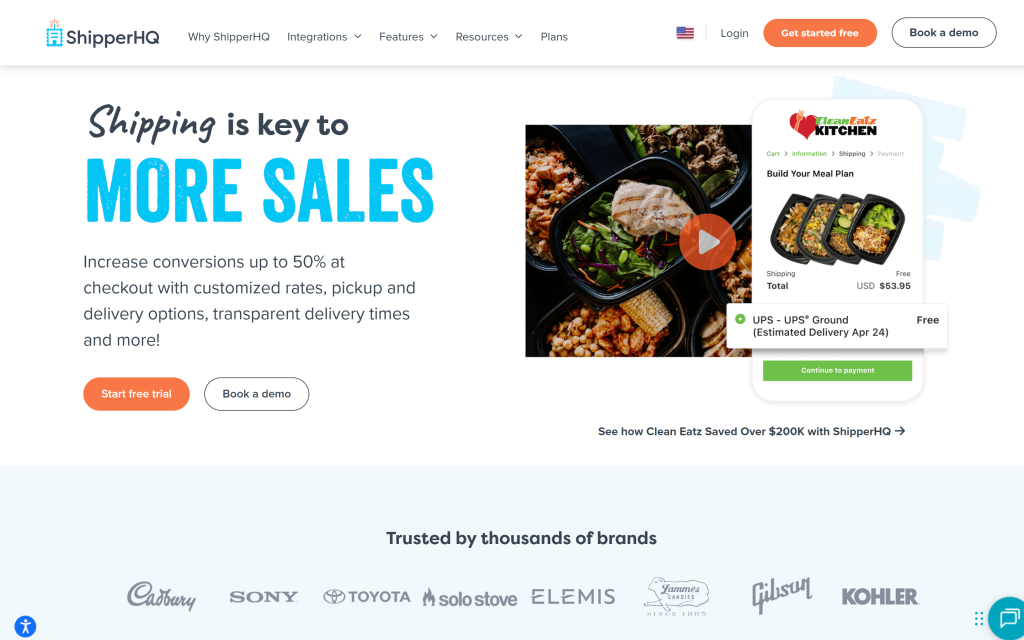
3. A Merchant-Centric Vendor Relationship: Shopware’s Partnership Philosophy
A major reason U.S. agencies and merchants are excited about Shopware is not just the technology itself but the experience of working with the company.
Unlike larger U.S. platform providers that often create layers between merchants and their product teams, Shopware maintains close collaboration and responsive communication with solution partners.
What Merchants & Agencies Experience:
- Proactive support from sales and solution engineering teams that tailor strategies to business models, not just “fit” merchants into a standard plan.
- Collaborative technical onboarding ensuring that agencies can execute complex implementations efficiently.
- Transparency and shared roadmap insights that help merchants make strategic, long-term technology decisions.
- Accessible leadership Shopware’s executive and product leadership regularly engage with their partner network.
For U.S. merchants, especially those scaling rapidly, this type of partnership offers more agility and confidence than working with closed, high-volume SaaS vendors.
4. Flexible Hosting & Licensing: Control Without Compromise
One of the most compelling advantages of Shopware is its flexibility in hosting architecture. Unlike some platforms that limit merchants to a single hosting model, Shopware provides a spectrum of deployment options allowing merchants to align their infrastructure strategy with their business goals, compliance requirements, and technical resources.
Whether you are a digitally native brand scaling quickly or an established enterprise with strict IT governance, Shopware offers an approach that fits.
4.1. Hosting Options
Platform as a Service (PaaS) — Hosting Included in Licensing
For many U.S. merchants, PaaS hosting represents the most efficient and predictable path to launch and scale their Shopware storefront.
With PaaS, the licensing fees include hosting costs, simplifying both procurement and budgeting. Merchants gain the advantages of a modern cloud architecture without the overhead of maintaining their own infrastructure.
Key Advantages of PaaS Hosting:
- Predictable Costs: Hosting is bundled with your Shopware licensing, minimizing surprise infrastructure expenses.
- Faster Time to Market: No need to set up or maintain servers, deployments and scaling are managed for you.
- High Availability & Scalability: Built-in redundancies and autoscaling help handle traffic spikes and ensure consistent performance.
- Security & Compliance: Hosting partners handle infrastructure hardening, security updates, and monitoring.
Two major technology partners support this PaaS ecosystem in the U.S.:
Webscale
- Webscale is widely known for providing high-performance, auto-scaling cloud infrastructure tailored for modern commerce platforms.
- It offers intelligent traffic management, application-layer security (WAF, DDoS protection), and performance optimization, ensuring storefronts remain fast and secure even under heavy load.
- For U.S. merchants, Webscale provides additional value with real-time visibility, zero-downtime scaling, and strong support for compliance standards — making it a natural fit for scaling brands.
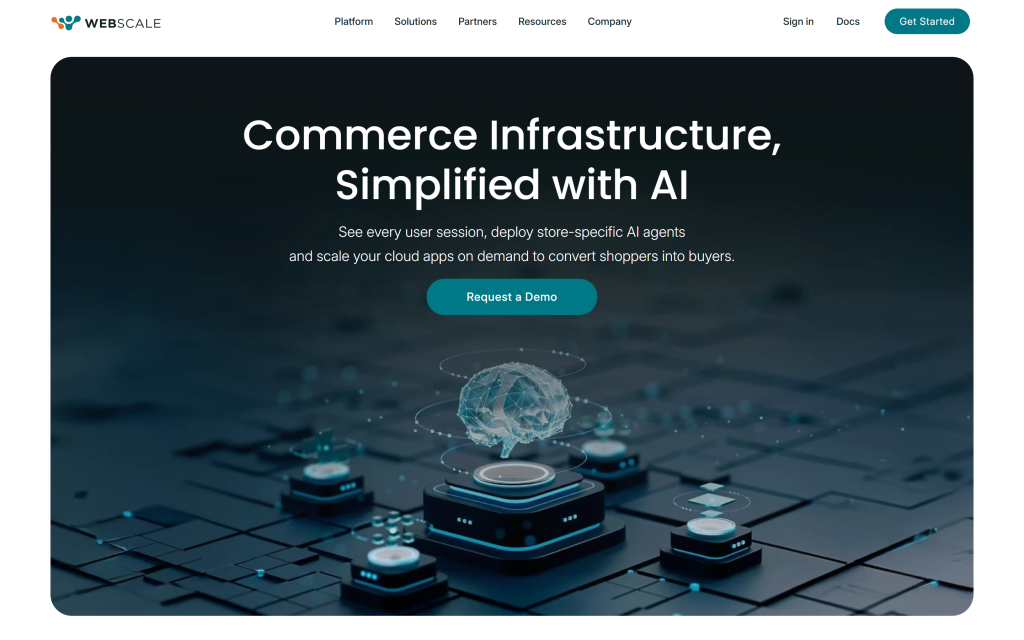
Upsun (formerly Platform.sh)
- Upsun is a trusted cloud platform that integrates directly with Shopware’s PaaS offering, supporting rapid deployments, multi-environment workflows, and advanced DevOps capabilities out of the box.
- Upsun enables automated scaling, continuous integration and deployment (CI/CD), and environment cloning, which can accelerate development cycles and simplify complex release processes.
- This makes it particularly attractive to brands with internal engineering teams that want flexibility without sacrificing operational efficiency.
By choosing the PaaS model with Shopware, merchants can focus on growth and experience, while their hosting partner ensures optimal performance, uptime, and security.
Self-Hosted / On-Premises — Full Control & Customization
For organizations with strict compliance requirements, high customization needs, or in-house DevOps expertise, self-hosting Shopware remains a powerful option. This model allows merchants to control every layer of their infrastructure from the underlying server stack to security and scaling strategies.
Benefits of Self-Hosting:
- Maximum Control: Configure hosting architecture precisely to your organization’s performance, security, and compliance needs.
- Custom Infrastructure: Integrate Shopware with existing corporate IT environments, ERPs, or private networks.
- Flexible Scaling: Build your own scaling strategy on top of cloud providers like Amazon Web Services, Google Cloud Platform, or Microsoft Azure.
- Vendor Choice: Maintain freedom to work with a hosting partner of your choice, or your own internal team.
Trusted Self-Managed Hosting Providers:
- JetRails — Managed eCommerce Hosting with Enterprise Performance
JetRails provides a fully managed, enterprise-grade hosting environment optimized for high-traffic Shopware stores.
Key Features:
- 24/7 expert monitoring, support, and server management
- Optimized performance for large catalogs and high SKU counts
- Enhanced security measures featuring DDoS protection, a robust Web Application Firewall (WAF), and fully PCI-compliant infrastructure.
- Automatic scaling to handle sudden traffic spikes without downtime
- Full access to server logs and performance insights for continuous optimization
Ideal For:
- High-volume merchants requiring reliable uptime
- Brands needing PCI-compliant infrastructure with minimal internal maintenance
- Teams seeking enterprise-grade performance without building internal hosting expertise
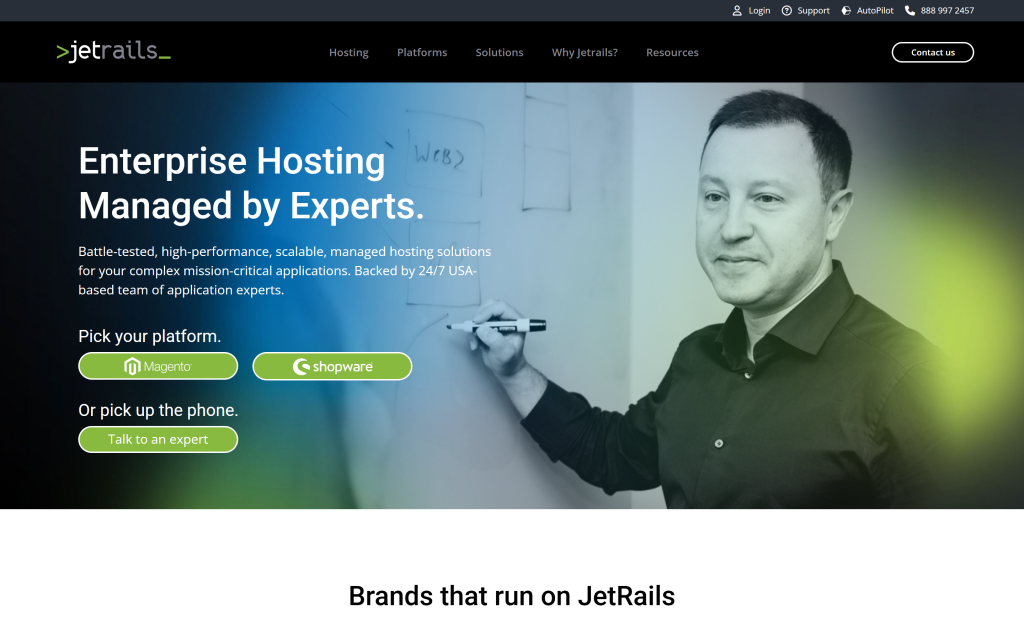
- Liquid Web — Flexible Cloud, VPS, and Dedicated Hosting
Liquid Web provides scalable, high-performance hosting solutions for merchants who want total control with robust managed support.
Key Features:
- Choice of dedicated servers, VPS, or cloud hosting to match business scale
- Full root access for advanced customizations and integrations
- Managed security, daily backups, and 24/7 monitoring
- Optimized architecture for Shopware storefronts and complex catalogs
- Scalable infrastructure capable of supporting seasonal spikes or rapid growth
Ideal For:
- Merchants needing customizable hosting with high reliability
- Brands with technical teams that want root-level server access
- Stores anticipating rapid scaling or high-traffic events
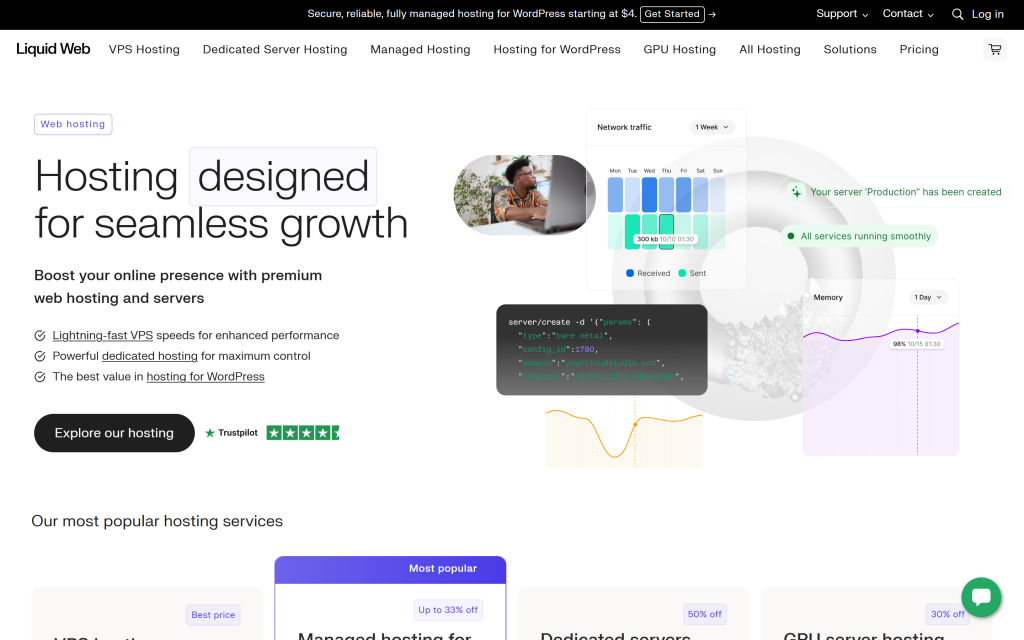
Custom Infrastructure: Merchants can also work with their own in-house DevOps teams or partner with Bemeir to architect bespoke hosting environments on their preferred cloud platform.
This approach is particularly suitable for:
- Regulated industries (e.g., healthcare, finance, government suppliers)
- Enterprise-level merchants with existing IT policies and security protocols
- High-volume brands requiring specific hosting configurations for performance or compliance
Hybrid Hosting — Balancing Control and Agility
A growing number of merchants are adopting hybrid models, where certain components are self-hosted while others are managed via the cloud. For example, a merchant might host core commerce services on its own infrastructure while leveraging Upsun or Webscale for content delivery and auto-scaling during high-traffic events.
Hybrid Benefits:
- Flexibility: Combine the cost and speed advantages of PaaS with the control of on-premises systems.
- Risk Management: Keep sensitive systems or data under direct control while offloading less critical components.
- Cost Efficiency: Optimize hosting spend by using the right mix of self-managed and cloud-managed infrastructure.
Why This Matters for U.S. Merchants
Unlike many eCommerce platforms that force businesses into rigid hosting contracts, Shopware allows U.S. merchants to choose the hosting model that aligns with their growth strategy.
- Startups and scaling brands may prefer PaaS for ease of launch and lower operational overhead.
- Mid-market and enterprise merchants can leverage self-hosting for control and compliance.
- Hybrid strategies offer the best of both worlds for brands looking to balance flexibility and cost.
This flexibility not only supports technical scalability but also gives merchants strategic agility ensuring they can adapt their infrastructure as their business evolves.
4.2. Licensing Transparency
Shopware’s licensing model is deliberately transparent and flexible:
- Merchants pay for what they need, without being forced into rigid pricing tiers.
- They retain ownership of their data and stack, even when hosted on Shopware Cloud.
- Multi-vendor hosting and competitive infrastructure pricing can result in significant TCO advantages over platforms with mandatory hosting contracts.
This flexibility enables merchants to scale strategically without incurring unnecessary platform lock-in or escalating hosting costs.
5. AI-Native Core: Shopware’s Vision for Intelligent Commerce
Unlike many platforms that rely heavily on third-party AI tools, Shopware has built AI capabilities directly into its platform core, giving merchants powerful functionality out of the box.
5.1. AI Copilot
Shopware’s AI Copilot assists merchants in generating product descriptions, SEO metadata, and campaign copy—significantly reducing the time and cost of manual content creation. It’s deeply integrated into the admin interface, allowing marketers and merchandisers to use AI natively without leaving their workflows.
5.2. Intelligent Merchandising
AI-driven product recommendations help personalize customer journeys, surface relevant products, and drive higher conversions. These recommendations can be customized based on behavior, purchase history, and real-time interactions.
5.3. Workflow Automation & Insights
- Automate routine tasks like order routing, tagging, and notifications.
- Identify sales trends, top performers, and inventory risk areas with AI-powered insights.
- Improve campaign targeting and budget allocation with predictive analytics.
5.4. AI Roadmap
Shopware continues to invest in expanding its AI suite, with upcoming features focused on:
- Advanced product tagging and taxonomy
- Predictive demand forecasting
- AI-assisted catalog enrichment
For U.S. merchants, this AI-native approach reduces integration complexity, accelerates time-to-value, and keeps businesses ahead of changing customer expectations.
6. Migration Strategy: Moving from Legacy Platforms to Shopware
Many U.S. merchants are actively evaluating migrations from platforms like Shopify, Magento Open Source / Adobe Commerce, and BigCommerce to Shopware. This shift is driven by a desire for greater control, flexibility, and long-term scalability.
Common Migration Motivations:
- High hosting or transaction fees with limited customization options
- Lack of robust B2B features in SaaS-first platforms
- Limited control over data and tech stack
- Need for advanced, flexible integrations and AI capabilities
Typical Migration Pathway:
- Discovery & Assessment — Mapping current architecture, integrations, and dependencies.
- Data Migration — Product, customer, and order data migration via Shopware’s APIs or migration tools.
- Integration Alignment — Rebuilding or enhancing integrations with marketing, ERP, and logistics vendors.
- Front-end & UX Development — Either with Shopware’s native frontend or a headless architecture.
- Testing & Launch — Ensuring performance, compliance, and operational readiness.
This structured migration strategy minimizes disruption while allowing merchants to unlock Shopware’s capabilities fully.
7. Vertical Deep Dive: How Shopware Serves Different Merchant Models
7.1. B2B Merchants
- Advanced account management and tiered pricing models
- Customer-specific catalogs and permissions
- Quoting workflows and ERP integration
7.2. B2C Merchants
- Storytelling tools through Shopping Experiences
- Promotions engine and loyalty functionality
- High performance storefronts optimized for mobile and omnichannel experiences
7.3. Hybrid Models (B2B + B2C)
- Unified product catalogs with flexible pricing rules
- Multiple storefronts managed through one backend
- Targeted merchandising for wholesale and retail segments
Shopware’s single-platform approach allows merchants to support multiple business models without duplicating technology investments.
8. Why Shopware Is Positioned for U.S. Market Growth
The U.S. ecommerce market is evolving rapidly. Merchants increasingly prioritize platform agility, cost efficiency, and innovation over rigid, pre-packaged solutions. Shopware is uniquely positioned to serve this shift due to:
- Open and extensible architecture
- Rapidly expanding U.S. ecosystem
- Strong partner and vendor relationships
- Deep AI integration
- Flexible hosting and transparent pricing
Unlike platforms that dictate how merchants must operate, Shopware empowers merchants to define their own commerce strategies, making it particularly appealing for ambitious, growing U.S. businesses.
9. Partner with Bemeir to Accelerate Your Shopware Strategy
Bemeir is proud to be among the leading agencies helping merchants embrace Shopware in the U.S. market. With a proven track record in complex ecommerce implementations, strategic integrations, and performance optimization, we provide:
- Strategic consulting and platform evaluation
- End-to-end Shopware implementation and migration services
- Custom integration development with leading U.S. vendors
- Ongoing support, optimization, and AI enablement

